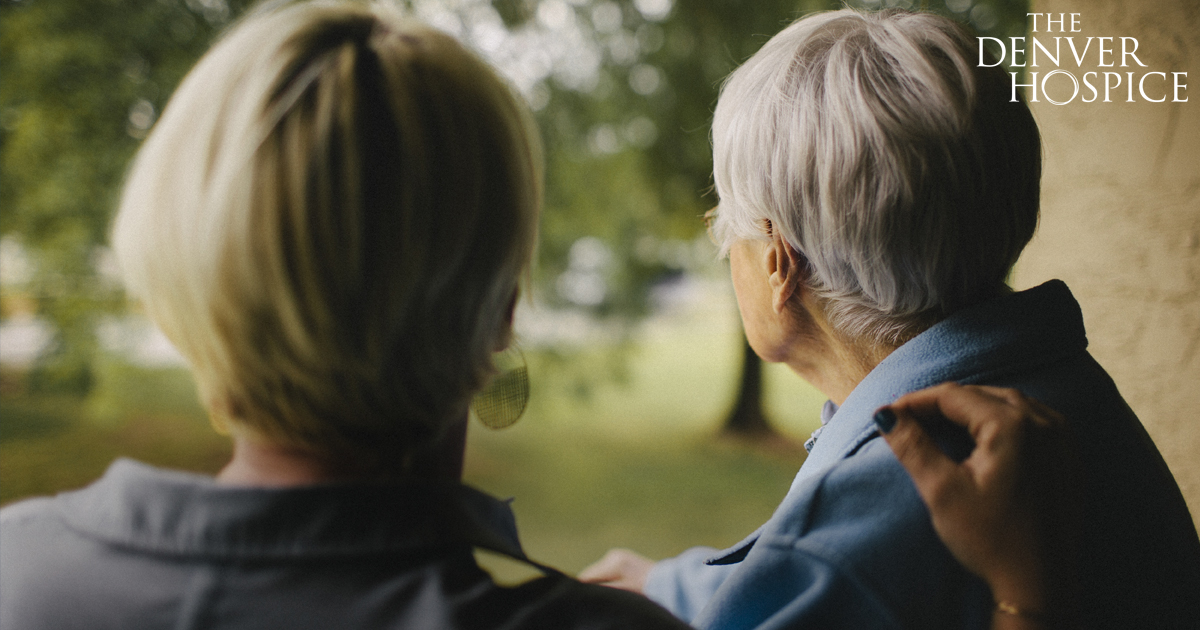How I Helped My Mother Choose Hospice Care

As a hospice physician who has cared for thousands of patients at the end of their lives, I had always assumed that hospice care would be an obvious choice for my mother when it came time for her to die. We had talked openly about my work for many years so I was not prepared for the fear and resistance that came up for her when it was time to choose the next steps in her medical care.
I soon learned that while Mom thought hospice care was wonderful and a blessing for other people, she was not prepared to accept it for herself. As we talked together I learned that she had many of the same misunderstandings about hospice care that I had heard from patients and their families in my work. Before she could agree to become a hospice patient we needed to address each of Mom's concerns and misperceptions:
1. Does hospice mean 'going without' medical care?
Mom feared that she would no longer be under the care of a doctor or be receiving attention for her medical problems. I helped her understand that hospice provides excellent care through a team approach that includes a doctor, nurse, aide, chaplain, social worker, and volunteers. Not only would all of her medical needs still be looked after, but she would actually be receiving the best possible care that focuses on the whole person, rather than just the disease.
2. Does hospice mean 'giving up' on life?
Many people, including my Mom, have the misunderstanding that hospice should only be chosen when you no longer care about life. But in fact, I explained to Mom, patients who do choose hospice are able to enjoy life more fully because their time and energy is no longer consumed with difficult treatments and uncomfortable side effects. With the excellent symptom management provided by the hospice team, patients are able to spend time with their loved ones and enjoy special moments, such as these my patients have experienced: having a picnic in the park, watching a play, attending a birthday party, or going fishing.
3. Does hospice mean going to an 'old folks home'?
Mom feared that if she chose hospice she might end up being admitted to a 'home' where she would be neglected or abandoned. I reassured her that hospice care would be provided in her own home by an attentive staff. She could be comfortable in her own surroundings with me and other family members looking after her with the help of the hospice workers. Those patients who need to be admitted to an inpatient facility still receive the same level of compassionate care that is provided in the home and can have loved ones at the bedside throughout their stay.
4. Does hospice mean being cared for by strangers?
Mom quickly learned during our introductory meeting with the hospice nurse that the healthcare workers who are attracted to hospice work are very special people. She immediately bonded with the nurse and recognized that she would be receiving not only competent care, but also compassionate, loving care. Her fears of being neglected or mistreated vanished when she saw that during her home visits she was free to ask questions and express her wishes.
5. Do hospice patients die more quickly?
Mom was concerned that choosing to move from curative treatment to supportive hospice care would shorten her life. But I was able to reassure her with statistics showing that hospice patients actually live longer than patients with the same diagnosis who do not receive hospice care. In my experience many patients lived more days than expected and also experienced greater quality of life during those days.
By listening to Mom's fears and providing her with factual information about hospice care I was able to help her choose to be admitted to a home hospice. She bonded with the staff quickly and looked forward to every visit. She set aside special books to give to her nurse that she thought she might enjoy reading and considered her a friend.
Mom's last weeks of life were filled with laughter and love as she spent them in her home surrounded by the people and things she loved. Hospice made it possible for her to stay in her home and offered support to me as her caregiver. We navigated her last days together, mother and daughter, and discovered our own special moments of healing and forgiveness that might not have been possible in a different setting.
During one of her last lucid days Mom, with tears in her eyes, expressed her thankfulness that she had chosen hospice because 'this has all been wonderful.' She wouldn't have had it be any other way. She wanted everyone to know that hospice eases fear and offers hope and love, which is the perfect way to spend your last moments of life.
Go Back